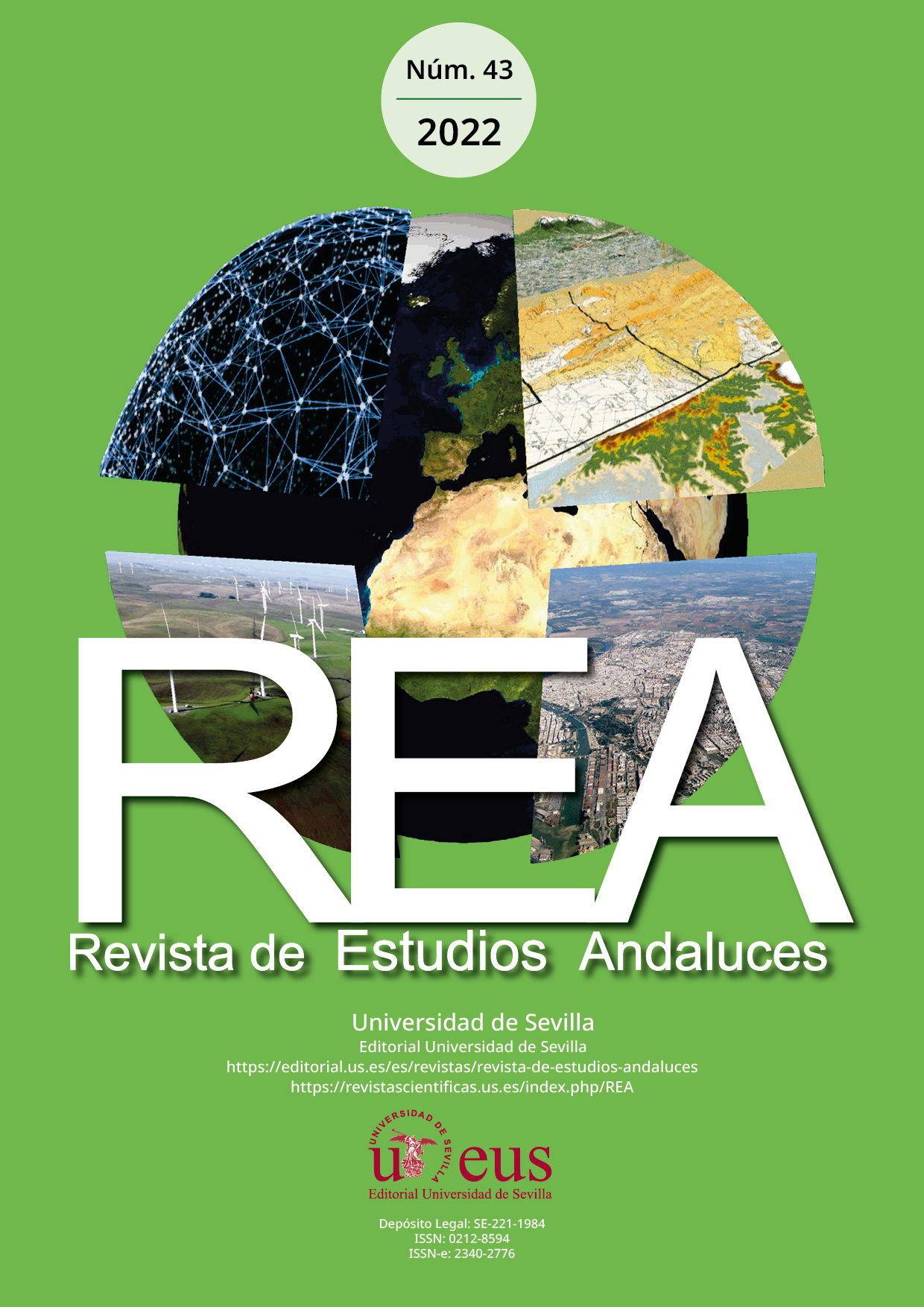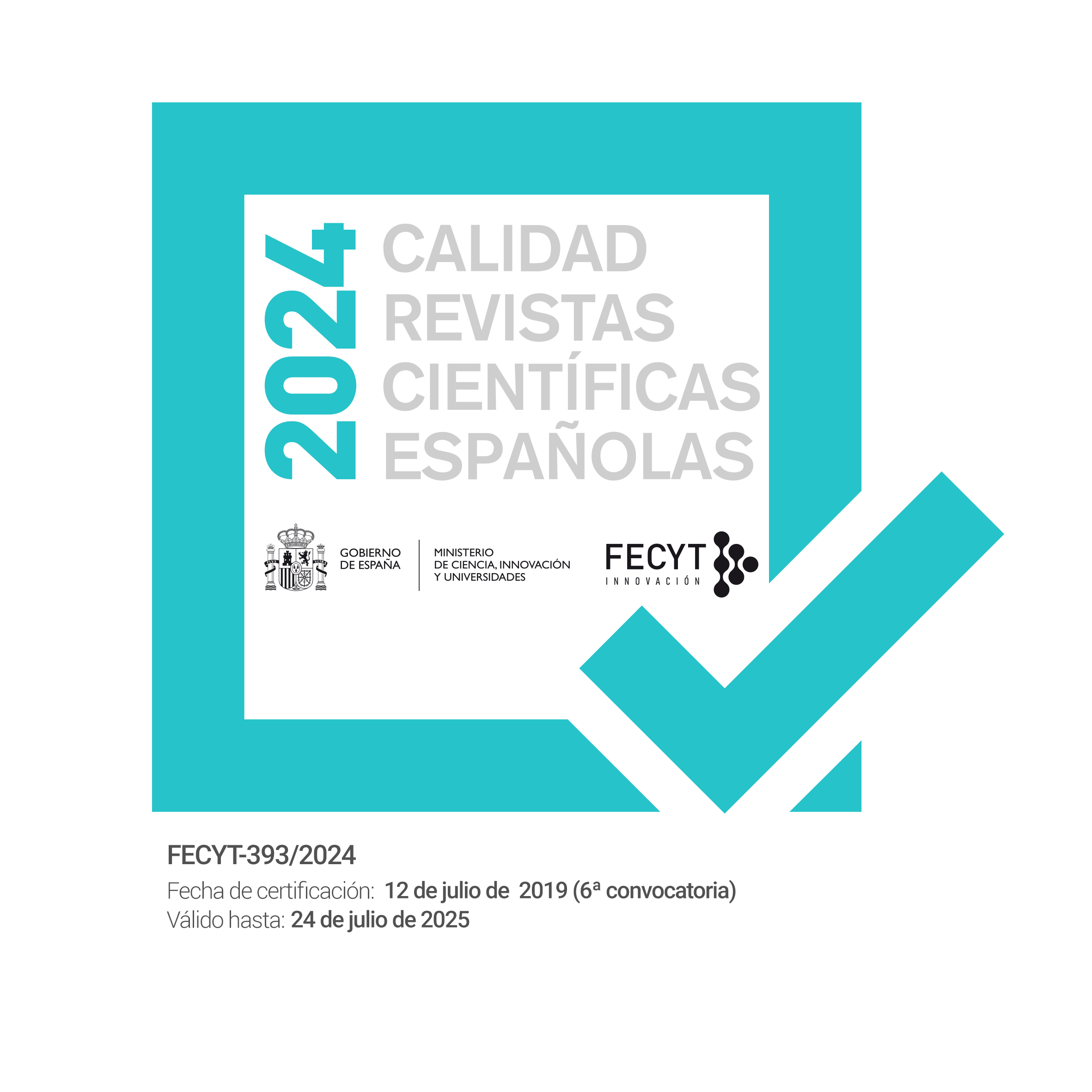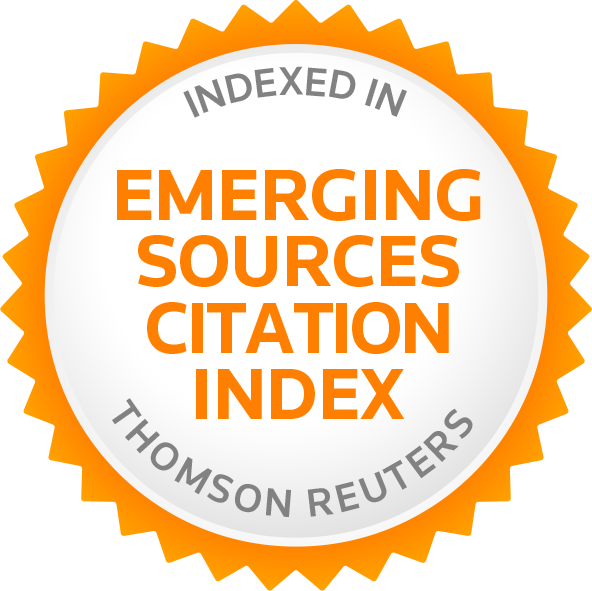Resiliencia del mercado turístico urbano ante la crisis de la COVID-19. El caso de Málaga
DOI:
https://doi.org/10.12795/rea.2022.i43.04Palabras clave:
Resiliencia, Turismo urbano, COVID-19, Hoteles, Airbnb, ImpactosResumen
Este artículo tiene como objetivo verificar la resiliencia del turismo urbano ante la crisis de la COVID-19 e identificar sus rasgos principales, tomando como referencia la ciudad de Málaga. Se utilizará el enfoque metodológico que proporciona el análisis económico para analizar la dinámica que se ha registrado en el mercado de alojamientos, tanto convencionales (hoteles) como el de viviendas turísticas de alquiler a corto plazo. Los datos se refieren a indicadores de demanda, de oferta y de precios para el periodo comprendido entre septiembre de 2018 y el mismo mes del año 2021. Los resultados del análisis evidencian claros signos de recuperación del mercado turístico a partir de la primavera de 2021. Más concretamente, se constata el protagonismo que adquieren los residentes en España en la demanda de alojamiento hotelero. Asimismo, en el mercado peer-to-peer se confirma que, meses después del levantamiento de las restricciones a la movilidad, se superaron los niveles de actividad alcanzados antes de la pandemia. Sobre esa base, parece pertinente reabrir y replantear el debate sobre la capacidad de carga de las ciudades y la conveniencia de regular el mercado de alojamientos turísticos.
Descargas
Citas
Ahuja, R. & Lyons, R. (2017). The Silent Treatment: LGBT Discrimination in the Sharing Economy, Trinity Economics Papers tep1917. Trinity College Dublin, Department of Economics. https://www.tcd.ie/Economics/TEP/2017/tep1917.pdf
Airbnb (2021a). Evaluaciones de alojamientos. https://www.airbnb.es/help/article/13/evaluaciones-de-alojamientos?_set_bev_on_new_domain=1602779486_mIqcHLyDNsehfobD
Airbnb (2021b). Superhost: un premio a los mejores anfitriones. https://www.airbnb.es/d/superhost
Airbnb (2021c). Cómo utilizar la Reserva inmediata. https://www.airbnb.es/help/article/1510/c%C3%B3mo-utilizar-la-reserva-inmediata
AirDNA (2021). Vacation Rental Data to Set You Apart. Insights to Keep You Ahead. https://www.airdna.co/
Alsudais, A. (2021). Incorrect data in the widely used Inside Airbnb dataset. Decision Support Systems, 141, 113453. https://doi.org/10.1016/j.dss.2020.113453
Arbulú, I., Razumova, M., Rey-Maquieira, J. & Sastre, F. (2021). Can domestic tourism relieve the COVID-19 tourist industry crisis? The case of Spain. Journal of Destination Marketing & Management, 20, 100568. https://doi.org/10.1016/j.jdmm.2021.100568
Ashworth, G. J. (1992). Is there an urban tourism? Tourism Recreation Research, 17(2), 3-8. https://doi.org/10.1080/02508281.1992.11014645
Ashworth, G. & Page, S. J. (2011). Urban tourism research: Recent progress and current paradoxes. Tourism Management, 32(1), 1-15. https://doi.org/10.1016/j.tourman.2010.02.002
Ayuntamiento de Málaga (2021). Plan estratégico turismo de Málaga 2021-2024. http://s3.malagaturismo.com/files/933/933/plan-estrategico-turismo-2021-2024-def.pdf
Belk, R. (2014). Sharing versus pseudo-sharing in Web 2.0. The Anthropologist, 18(1), 7-23. https://doi.org/10.1080/09720073.2014.11891518
Benítez-Aurioles, B. (2018a). Estrategias de comunicación: Airbnb versus hoteles/Communication strategies: Airbnb versus hotels. Revista Internacional de Relaciones Públicas, 8(16), 47-66. http://dx.doi.org/10.5783/RIRP-16-2018-04-47-66
Benítez-Aurioles, B. (2018b). Why are flexible booking policies priced negatively? Tourism Management, 67, 312-325. https://doi.org/10.1016/j.tourman.2018.02.008
Benítez-Aurioles, B. (2018c). The role of distance in the peer-to-peer market for tourist accommodation. Tourism Economics, 24(3), 237-250. https://doi.org/10.1177/1354816617726211
Benítez-Aurioles, B. (2019a). Barcelona’s peer-to-peer tourist accommodation market in turbulent times: terrorism and political uncertainty. International Journal of Contemporary Hospitality Management, 31(12), 4419-4437. https://doi.org/10.1108/IJCHM-01-2019-0090
Benítez-Aurioles, B. (2019b). Is Airbnb bad for hotels? Current Issues in Tourism, 1-4. https://doi.org/10.1080/13683500.2019.1646226
Benítez-Aurioles, B. (2020a). Tourism Resilience Patterns in Southern Europe. Tourism Analysis, 25(4), 409-424. https://doi.org/10.3727/108354220X16010020096118
Benítez-Aurioles, B. (2020b). The exhaustion of the herding effect in peer-to-peer accommodation. Tourism Economics, 1354816620946537. https://doi.org/10.1177/1354816620946537
Benítez-Aurioles, B. (2021a). Uncertainty and tourism. A regional approach. Investigaciones Turísticas, 22, 52-68. https://doi.org/10.14198/INTURI2021.22.3
Benítez-Aurioles, B. (2021b). El turismo interior en España ante la crisis de la COVID-19. Boletín económico de ICE, Información Comercial Española, 3139, 43-53. https://doi.org/10.32796/bice.2021.3139.7285
Benítez-Aurioles, B. & Tussyadiah, I. P. (2020). What Airbnb does to the housing market. Annals of Tourism Research, 103108. https://doi.org/10.1016/j.annals.2020.103108
Blake, A. & Sinclair, M. T. (2003). Tourism crisis management: US response to September 11. Annals of Tourism Research, 30(4), 813-832. https://doi.org/10.1016/S0160-7383(03)00056-2
Camilleri, J. & Neuhofer, B. (2017). Value co-creation and co-destruction in the Airbnb sharing economy. International Journal of Contemporary Hospitality Management, 29(9), 2322-2340. https://doi.org/10.1108/IJCHM-09-2016-0492
Comendador-Sánchez, A., Santos-Pavón, E. & Hernández-Ramírez, J. (2021). Players, interests and public policies in relation to tourist rental housing in Spain (2010-2019). Complexity and multiple conflicts. Journal of Tourism Analysis: Revista de Análisis Turístico (JTA), 28(1), 1-21. https://doi.org/10.53596/jta.v28i1.373
Cooper, M. (2006). Japanese tourism and the SARS epidemic of 2003. Journal of Travel & Tourism Marketing, 19(2-3), 117-131. https://doi.org/10.1300/J073v19n02_10
Corbet, S., O’Connell, J. F., Efthymiou, M., Guiomard, C. & Lucey, B. (2019). The impact of terrorism on European tourism. Annals of Tourism Research, 75, 1-17. https://doi.org/10.1016/j.annals.2018.12.012
Dann, D., Teubner, T. & Weinhardt, C. (2019). Poster child and guinea pig–insights from a structured literature review on Airbnb. International Journal of Contemporary Hospitality Management, 31(1), 427-473. https://doi.org/10.1108/IJCHM-03-2018-0186
Deale, C. S., & Crawford, A. (2018). Providers’ perceptions of the online community marketplace for lodging accommodations. Tourism and Hospitality Research, 18(4), 470-477. https://doi.org/10.1177/1467358416682067
Deane, S. (2021). 2021 Airbnb Statistics: Usage, Demographics, and Revenue Growth. https://www.stratosjets.com/blog/airbnb-statistics/
Dolnicar, S. (2019). A review of research into paid online peer-to-peer accommodation: Launching the Annals of Tourism Research curated collection on peer-to-peer accommodation. Annals of Tourism Research, 75, 248-264. https://doi.org/10.1016/j.annals.2019.02.003
Dolnicar, S. & Zare, S. (2020). COVID19 and Airbnb–Disrupting the disruptor. Annals of Tourism Research, 83, 102961. https://doi.org/10.1016/j.annals.2020.102961
Edelman, B., Luca, M., & Svirsky, D. (2017). Racial discrimination in the sharing economy: Evidence from a field experiment. American Economic Journal: Applied Economics, 9(2), 1-22. https://doi.org/10.1257/app.20160213
Edwards, D., Griffin, T. & Hayllar, B. (2008). Urban tourism research: developing an agenda. Annals of Tourism Research, 35(4), 1032–1052. https://doi.org/10.1016/j.annals.2008.09.002
Einav, L., Farronato, C. & Levin, J. (2016). Peer-to-peer markets. Annual Review of Economics, 8, 615-635. https://doi.org/10.1146/annurev-economics-080315-015334
Exceltur (2017). Monitor de competitividad turística de los destinos urbanos españoles. Urbantur 2016. https://www.exceltur.org/
Exceltur (2021). Barómetro de la rentabilidad de los destinos turísticos españoles. https://www.exceltur.org/wp-content/uploads/2021/02/Baro%CC%81metro-Rentabilidad-y-el-Empleo-Enero-Diciembre-2020.pdf
Gassmann, S.-E., Nunkoo, R., Tiberius, V. & Kraus, S. (2021). My home is your castle: forecasting the future of accommodation sharing. International Journal of Contemporary Hospitality Management, 33(2), 467-489. https://doi.org/10.1108/IJCHM-06-2020-0596
Gibbs, C., Guttentag, D., Gretzel, U., Morton, J. & Goodwill, A. (2018a). Pricing in the sharing economy: A hedonic pricing model applied to Airbnb listings. Journal of Travel & Tourism Marketing, 35(1), 46-56. https://doi.org/10.1080/10548408.2017.1308292
Gurran, N. & Phibbs, P. (2017). When tourists move in: how should urban planners respond to Airbnb? Journal of the American Planning Association, 83(1), 80-92. https://doi.org/10.1080/01944363.2016.1249011
Guttentag, D. (2015). Airbnb: disruptive innovation and the rise of an informal tourism accommodation sector. Current issues in Tourism, 18(12), 1192-1217. https://doi.org/10.1080/13683500.2013.827159
Guttentag, D. (2019). Progress on Airbnb: a literature review. Journal of Hospitality and Tourism Technology. https://doi.org/10.1108/JHTT-08-2018-0075
Gyódi, K. (2019). Airbnb in European cities: Business as usual or true sharing economy?. Journal of Cleaner Production, 221, 536-551. https://doi.org/10.1016/j.jclepro.2019.02.221
Hajibaba, H. & Dolnicar, S. (2018). Airbnb and its Competitors. En S. Dolnicar (Ed.) Peer-to-Peer Accommodation Networks: Pushing the boundaries (pp. 63-76). Oxford: Goodfellow Publishers. https://dx.doi.org/10.23912/9781911396512–3604
Hartmans, A. (2017). Airbnb now has more listings worldwide than the top five hotel brands combined, BusinessInsider. https://www.businessinsider.com/airbnb-total-worldwide-listings-2017-8
Hati, S. R. H., Balqiah, T. E., Hananto, A. & Yuliati, E. (2021). A decade of systematic literature review on Airbnb: the sharing economy from a multiple stakeholder perspective. Heliyon, 7(10), e08222. https://doi.org/10.1016/j.heliyon.2021.e08222
Hocevar, M. & Bartol, T. (2021). Mapping urban tourism issues: analysis of research perspectives through the lens of network visualization. International Journal of Tourism Cities. 7(3), 818-844. https://doi.org/10.1108/IJTC-05-2020-0110
Hu, M. R. & Lee, A. D. (2020). Airbnb, COVID-19 Risk and Lockdowns: Global Evidence. https://papers.ssrn.com/sol3/papers.cfm?abstract_id=3589141
Ikeji, T. & Nagai, H. (2020). Residents’ attitudes towards peer-to-peer accommodations in Japan: Exploring hidden influences from intergroup biases. Tourism Planning & Development, 18(5), 491-509. https://doi.org/10.1080/21568316.2020.1807400
Ikkala T. & Lampinen A. (2014) Defining the Price of Hospitality: Networked Hospitality Exchange via Airbnb. CSCW, Baltimore, 173-176. https://doi.org/10.1145/2556420.2556506
INE (2019). Encuesta de Ocupación Hotelera. Metodología. https://ine.es/daco/daco42/ocuphotel/meto_eoh.pdf
INE (2021a). Estimación de la ocupación en alojamientos turísticos a partir de datos de plataformas digitales. https://ine.es/experimental/ocupacion/experimental_ocupacion.htm
INE (2021b). Indicadores Urban Audit para Ciudades. https://www.ine.es/jaxiT3/Tabla.htm?t=30140
INE (2021c). Encuesta de Ocupación Hotelera. https://ine.es/dyngs/INEbase/es/operacion.htm?c=Estadistica_C&cid=1254736177015&menu=ultiDatos&idp=1254735576863
InsideAirbnb (2021). Get the Data. http://insideairbnb.com/get-the-data.html
Jiménez, J. L., Ortuño, A. & Pérez-Rodríguez, J. V. (2021). How does AirBnb affect local Spanish tourism markets?. Empirical Economics, 1-31. https://doi.org/10.1007/s00181-021-02107-2
Karlsson, L. & Dolnicar, S. (2016). Someone’s been sleeping in my bed. Annals of Tourism Research, 58, 159-162. https://doi.org/10.1016/j.annals.2016.02.006
Li, J., Moreno, A. & Zhang, D. J. (2019). Agent Pricing in the Sharing Economy: Evidence from Airbnb. In M. Hu (Ed.) Sharing Economy (pp. 485-503). Cham: Springer. https://doi.org/10.1007/978-3-030-01863-4_20
Liang, S., Schuckert, M., Law, R. & Chen, C-C. (2017). Be a ‘Superhost’: The importance of badge systems for peer-to-peer rental accommodations. Tourism Management, 60, 454-465. https://doi.org/10.1016/j.tourman.2017.01.007
Luckey (2021). Gestión de apartamentos turísticos en Airbnb. https://luckey.es/
Magno, F., Cassia, F.& Ug olini, M. M. (2018). Accommodation prices on Airbnb: effects of host experience and market demand. The TQM Journal, 30(5), 608-620. https://doi.org/10.1108/TQM-12-2017-0164
Martín, E. G. & Gimeno, M. V. (2021). Encuestas de Ocupación en Alojamientos Turísticos. Índices de Precios e Indicadores de Rentabilidad del Sector Hotelero. Indice: Revista de Estadística y Sociedad, (80), 26-32. http://www.revistaindice.com/numero80/p26.pdf
McKercher, B. & Chon, K. (2004). The over-reaction to SARS and the collapse of Asian tourism. Annals of Tourism Research, 31(3), 716-719. https://doi.org/10.1016/j.annals.2003.11.002
Möhlmann, M. (2015). Collaborative consumption: determinants of satisfaction and the likelihood of using a sharing economy option again. Journal of Consumer Behaviour, 14(3), 193-207. https://doi.org/10.1002/cb.1512
Namberger, P., Jackisch, S., Schmude, J. & Karl, M. (2019). Overcrowding, overtourism and local level disturbance: how much can Munich handle?. Tourism Planning & Development, 16(4), 452-472. https://doi.org/10.1080/21568316.2019.1595706
Observatorio turístico de la ciudad de Málaga (s.f.). Enero 2019 – Diciembre 2019. http://s3.malagaturismo.com/files/974/974/presentacion-observatorio-turistico-ciudad-de-malagaene19dic19100320-2.pdf
Oskam, J. & Boswijk, A. (2016). Airbnb: the future of networked hospitality businesses. Journal of Tourism Futures, 2(1), 22-42. https://doi.org/10.1108/JTF-11-2015-0048
Oskam, J. A. (2020). Commodification of the ‘Local’ in Urban Tourism: The Airbnb Contradiction. En J. A. Oskam (Ed.) The Overtourism Debate, Emerald Publishing Limited, Bingley (pp. 151-170). https://doi.org/10.1108/978-1-83867-487-820201011
Ozdemir, G. & Turker, D. (2019). Institutionalization of the sharing in the context of Airbnb: a systematic literature review and content analysis. Anatolia, 30(4), 601-613. https://doi.org/10.1080/13032917.2019.1669686
Pechlaner, H. & Frehse, J. (2010). Financial crisis and tourism. En R. Conrady & M. Buck (Eds.) Trends and Issues in Global Tourism 2010 (pp. 27-38). Berlin, Heidelberg: Springer. https://doi.org/10.1007/978-3-642-10829-7_4
Prayag, G. & Ozanne, L. K. (2018). A systematic review of peer-to-peer (P2P) accommodation sharing research from 2010 to 2016: progress and prospects from the multi-level perspective. Journal of Hospitality Marketing & Management, 27(6), 649-678. https://doi.org/10.1080/19368623.2018.1429977
Priporas, C. V., Stylos, N., Rahimi, R. & Vedanthachari, L. N. (2017). Unraveling the diverse nature of service quality in a sharing economy: A social exchange theory perspective of Airbnb accommodation. International Journal of Contemporary Hospitality Management, 29(9), 2279-2301. https://doi.org/10.1108/IJCHM-08-2016-0420
Reinhold, S. & Dolnicar, S. (2018). The Sharing Economy. In S. Dolnicar (Ed.) Peer-to-Peer Accommodation Networks: Pushing the boundaries (pp. 15-26). Oxford: Goodfellow Publishers. http://dx.doi.org/10.23912/9781911396512-3600
Rosselló, J., Becken, S. & Santana-Gallego, M. (2020). The effects of natural disasters on international tourism: A global analysis. Tourism Management, 79, 104080. https://doi.org/10.1016/j.tourman.2020.104080
Sainaghi, R. (2020). The current state of academic research into peer-to-peer accommodation platforms. International Journal of Hospitality Management, 89. https://doi.org/10.1016/j.ijhm.2020.102555
Schor, J. (2016). Debating the sharing economy. Journal of Self-Governance and Management Economics, 4(3), 7-22. https://doi.org/10.22381/jsme4320161
Smith, M. K., Sziva, I. P. & Olt, G. (2019). Overtourism and resident resistance in Budapest. Tourism Planning & Development, 16(4), 376-392. https://doi.org/10.1080/21568316.2019.1595705
Tussyadiah, I. P. (2016). Factors of satisfaction and intention to use peer-to-peer accommodation. International Journal of Hospitality Management, 55, 70-80. https://doi.org/10.1016/j.ijhm.2016.03.005
Tussyadiah, I. P. & Pesonen, J. (2016). Impacts of peer-to-peer accommodation use on travel patterns. Journal of Travel Research, 55(8), 1022-1040. https://doi.org/10.1177/0047287515608505
Tussyadiah, I. P. & Zach, F. (2017). Identifying salient attributes of peer-to-peer accommodation experience. Journal of Travel & Tourism Marketing, 34(5), 636-652. https://doi.org/10.1080/10548408.2016.1209153
UNWTO (2018). ‘Overtourism’? Understanding and managing urban tourism growth beyond perceptions. Madrid: UNWTO. https://doi.org/10.18111/9789284420070
UNWTO (2019), Definiciones de turismo de la OMT, OMT, Madrid, https://doi.org/10.18111/9789284420858
UNWTO (2021). 2020: Worst year in tourism history with 1 billion fewer international arrivals. https://www.unwto.org/news/2020-worst-year-in-tourism-history-with-1-billion-fewer-international-arrivals
Wang, D. & Nicolau, J. L. (2017). Price determinants of sharing economy based accommodation rental: A study of listings from 33 cities on Airbnb.com. International Journal of Hospitality Management, 62, 120-131. https://doi.org/10.1016/j.ijhm.2016.12.007
Wiles, A. & Crawford, A. (2017). Network hospitality in the share economy: Understanding guest experiences and the impact of sharing on lodging. International Journal of Contemporary Hospitality Management, 29(9), 2444-2463. https://doi.org/10.1108/IJCHM-08-2016-0453
Wu, J., Zeng, M. & Xie, K. L. (2017). Chinese travelers’ behavioral intentions toward room-sharing platforms: The influence of motivations, perceived trust, and past experience. International Journal of Contemporary Hospitality Management, 29(10), 2688-2707. https://doi.org/10.1108/IJCHM-08-2016-0481
Zheng, W., Ji, H., Lin, C., Wang, W. & Yu, B. (2020). Using a heuristic approach to design personalized urban tourism itineraries with hotel selection. Tourism Management, 76, 103956. https://doi.org/10.1016/j.tourman.2019.103956
Publicado
Cómo citar
Número
Sección
Licencia
Derechos de autor 2022 Revista de Estudios Andaluces

Esta obra está bajo una licencia internacional Creative Commons Atribución-NoComercial-CompartirIgual 4.0.
La edición electrónica de la Revista de Estudios Andaluces se ofrece en acceso abierto desde el número 28 publicado en 2011 hasta la actualidad. Las ediciones impresa y electrónica de esta Revista son editadas por la Editorial de la Universidad de Sevilla, siendo necesario citar la procedencia en cualquier reproducción parcial o total.
La Revista de Estudios Andaluces no cobra tasas por el envío de trabajos, ni tampoco cuotas por la publicación de sus artículos. La Revista es gratuita desde el momento de la publicación de cada número y sus contenidos se distribuyen con la licencia “CreativeCommons Atribución-NoComercial-SinDerivar 4.0 Internacional” , que permite al usuario de la Revista de Estudios Andaluces criterios que cumplen con la definición de open access de la Declaración de Budapest en favor del acceso abierto. Puede consultar desde aquí la versión informativa y el texto legal de la licencia. Esta circunstancia ha de hacerse constar expresamente de esta forma cuando sea necesario.







